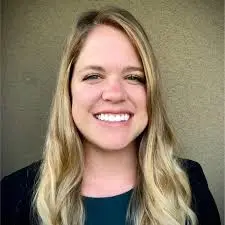PMI-ACP® Certification Training
Key Features
- Instructor-Led PMI-ACP Agile Certification Training
- 4 Full-Length PMI-ACP Practice Tests
- 600 PMI-ACP Exam Prep Practice Questions
- 21 Contact Hours Certificate
- Complimentary lifetime access to PMI-ACP E-learning
- Assistance in PMI-ACP® Exam Application Process
- Interactive sessions with real-life examples
- Instructor-led Live-Online Training is also available
- Real-time Scenarios from various Industrial Verticals
Training Mode
E-LEARNING
$499
- PMI-ACP® 180 days e-Learning
- Self paced online e-learning
- Interactive audio-video lessons
- Online Exam Simulator
- ebook and study materials
- 24x7 Online access
Online – Classroom Bootcamp
$999
- 90 days of flexible access to online, classroom classes
- Live, online classroom training by certified instructor & Practitioners
Class starts from:-
- 23 Sep - Weekend Class
- 27 Sep - Weekday Class
CORPORATE TRAINING
- Customized learning delivery model (digital material and/or instructor-led)
- Flexible pricing options
- Enterprise grade Learning Management System (LMS)
- Enterprise dashboards for individuals and teams
- 24x7 learner assistance and support
PMI-ACP® CERTIFICATION TRAINING COURSE
PMI-ACP (Agile Certified Practitioner) Certification is a dedicated and focused certification affiliated with PMI that provides an in-depth knowledge of different agile methodologies such as Kanban, Lean, Scrum, XP & another programming to the interested individuals. The PMI-ACP training program is aligned with the 2017 PMI® guidelines to help you pass your PMI-ACP exam.
This PMI-ACP® (Project Management Institute Agile Certified Practitioner) course aims to teach the essential agile methodologies and various principles underpinning Agile before moving on to different approaches. It helps to learn all the agile frameworks such as Scrum, Kanban, Lean, extreme programming (XP), and test-driven development (TDD). With this certification, you will have rich knowledge of different techniques of Agile Practices, Principles, and values. This preparation course has been updated and in line with the latest PMI-ACP exam.
- With the PMI-ACP® course, one can learn how to plan, estimate, and implement Agile techniques in a project.
- PMI-ACP® will teach you different frameworks of Agile like Scrum, Lean, XP, Kanban, and DSDM.
- This certification is that one can get tricks of Agile by learning how to manage the project deadlines, cost-effectiveness in the Project, Budgeting, and Timelines. Apply project management terminologies and concepts
- One can learn about Scrum in detail since Scrum is the widely used framework of Agile. One can learn Scrum events, artifacts, and Scrum Roles with PMI-ACP® certification.
- A Certified PMI-ACP® professional is highly preferred. This certification adds profound value to your profile and a good knowledge base about the subject matter.
- PMI-ACP certification helps yield a good salary package compared to other non- certified professionals since the PMI-ACP® certification is in huge demand.
- With PMI-ACP® certification, you can easily aim for managerial roles in an organization, provided you have enough skills to support them.
PMI-ACP® COURSE AGENDA AND OVERVIEW
Course Overview
PMI-ACP (Agile Certified Practitioner) Certification is a dedicated and focused certification accredited by the project management Institute (PMI). The PMI-ACP® certification recognizes an individual’s expertise in using agile practices in their projects while demonstrating their increased professional versatility through agile tools and techniques.
At the end of this course, you will:
- Learn how to plan, estimate, and implement Agile techniques in a project.
- PMI-ACP® will teach you different frameworks of Agile like Scrum, Lean, XP, Kanban and DSDM.
- Through PMI-ACP® certification, you learn the tricks of Agile by studying how to manage the project deadlines, cost-effectiveness in the Project, Budgeting, and Timelines.
- One can learn about Scrum in detail since Scrum is the widely used framework of Agile.
- This certification will add a lot of value to your Profile as well as you will gain a good knowledge base about the Subject Matter.
- PMI-ACP Certified Yield better package/salary compared to other non-certified Professionals since PMI-ACP®
Course Agenda
Day 1
Introduction to Our Company
- What people say about Our Company?
- Training type
- Accreditations and Client
- About Company
- Introduction to live training
- About the tutorial
Agile Certified Practitioner Course Overview
- Value, Eligibility, Certification Timeline, Audit Process, Certification Process, Exam Process
- Domains and Tasks
Agile Principles and Mind-set Part I
- Agile: Best Practices, Evolution, Manifesto, Principles
- What Agile is Not
- Benefits of Agile
Agile Principles and Mind-set Part II
- Agile, Methodologies, Frameworks and Processes
- Scrum
- Extreme Programming
- Crystal Methodology
- Dynamic Systems Development Method
- Feature Driven Development
- Agile Project Management: Framework
- APM vs PMBOK
- Lean Software Development
- Lean Principles
- Kanban, Open UP,
- Information Radiators
Value-Driven Delivery Part I
- Value: Forecasting
- Time Value of Money
- Financial Feasibility of Projects
- Return on Investment, Net Present Value, Internal Rate of Return, Payback
- period
- Prioritization
- Agile Customer-Value Prioritization
- Prioritization Techniques
- Risk Management in Agile and Risk Adjusted Product Backlog
- Non-Functional Requirements
Value-Driven Delivery Part II
- Minimum marketable Feature
- Kanban Boards
- Kanban and JIT
- Incremental Delivery
- Review and Feedback Techniques
- Reprioritization or Relative Prioritization
- Agile Compliance
- Earned Value Management for Agile
- Agile Contracts
Stakeholder Engagement Part I
- Stakeholder Management
- Project Charter
- Business Case
- Understanding Stakeholders’ Needs
- Agile Wireframes
- User Story
- Agile Personas
- Product Backlog
- Agile Story Maps
Day 2
Stakeholder Engagement Part II
- Communication Management
- Agile Communications
- Information Radiators
- Burn-up Charts and Burn down Charts
- Impediment Logs
- Visible Charts
- Agile Modeling
- Active Listening
- Globalization, Culture and Team Diversity
- Agile Facilitation Methods
- Agile Participatory Decision-Making
- Agile Negotiation and Conflict Resolution
Team Performance Part I
- Team Formation
- Setting and Managing Expectations
- Daily Stand up Meeting
- Introduction to Agile Leadership
- Adaptive Leadership, Management vs Leadership, Coaching and Mentoring
- Agile Emotional Intelligence
Team Performance Part II
- Agile Team Motivation
- Team Space
- Collaboration Technology
- Agile Brain Storming Session
- Velocity
Adaptive Planning Part I
- Aligning Agile Projects to Programs and Portfolios
- Timeboxing
- Estimation
- Measure of Project Size
- Story Points
- Affinity Estimation
- Determining Project Size
Adaptive Planning Part II
- Release Plan
- Agile Product Roadmap
- Iteration Plan
- Value based Analysis and Decomposition
- Cone of Uncertainty
- Velocity Variations
- Sprint Reviews
Day 3
Problem Detection and Resolution Part I
- Agile problem Detection
- Escaped Defects
- Work in Progress
- Cumulative Flow Diagram
- Agile Problem Solving
Problem Detection and Resolution Part II
- Metric and Measure
- Burn Charts
- Variance Analysis, Trend Analysis
- Risk Management in Agile
- Risk Log, Risk Burndown Chart, Risk Profile Graphs, Progressive Risk
- Reduction
- Spike
- Agile Failure Modes
Continuous Improvement Part I
- Kaizen
- Retrospectives
- Process Analysis Technique
- Agile Process Tailoring
- Quality in Agile
- Test Driven Development
- Checklist for Story Completion
Continuous Improvement Part II
- Value Stream Mapping
- Seven Forms of Waste
- Agile Flowcharts
- Agile Spaghetti Diagrams
- Self-Assessment
- Principles of System Thinking
The Agile Practice Guide
- The Agile Mindset
- Agile Approaches
- Uncertainty and Risk
- Life Cycle Selection
- Creating Agile Environment
- Delivering in Agile Environment
Agile Organization Considerations
EXAM & CERTIFICATION
PMI-ACP Eligibility Requirements
If you already use agile practices or your organization is adopting agile methods, earning the PMI-ACP certification will demonstrate your knowledge of and commitment to this rapidly growing approach to project management.
| Requirement | Description |
|---|---|
| General Project Experience |
|
| Agile Project Experience |
|
| Training in Agile Practices |
|
| Examination |
|
Step 1: You need to fill in the PMI-ACP application with the relevant information about your work experience.
Step 2: Once the application you can schedule your test anytime as per your convenience within one year
Step 3: You need to complete test of 3-hour duration, consists of 120 multiple-choice questions.
Start by confirming if you are complying with the eligibility criteria to qualify for the PMI-ACP certification examination. Ensure the information filled is right and relevant. Once submitted, you cannot do any correction. So, take time, inspect and edit before you submit. Only when you are fully confident about the correctness of the
information, submit the application.
Our Trainer will help you in filling up your application over the class.
Usually it takes about 4 to 6 weeks to receive the certificate from the date of passing the exam.
OUR ADVISORS


FAQs
To apply for the PMI Agile Certified Practitioner certification PMI, you should have:
- A secondary degree or higher
- 2000 hours of general project management experience in the last five years
- At least 1,500 hours of experience working on agile project teams during last three years
| PMI Member Status | USD Fee |
|---|---|
| Non-member | $495.00 |
| Member | $435.00 |
The membership fee us $129/Year + $10 application fee
The PMI-ACP certification course includes:
- Assistance in application process
- Access to our e-learning content
- Practice simulation tests
- Tips and tricks videos that help you tackle the toughest CAPM Certification exam questions
- Online participant handbook with cross-references to the e-learning content
- Chapter end quizzes
- Free exam prep questions
postal mail or express courier service is the most preferred means to post the requested audited documents to the PMI®'s official address. Kindly post all the required documents in a single envelope and avoid multiple posts. Please note that PMI® will not accept documents sent through fax machine or emails.
The exam application fees must be paid during the submission of the application. The Audit is at the discretion of PMI and happens during processing of applicants documentation.
STUDENT EXPERIENCES






